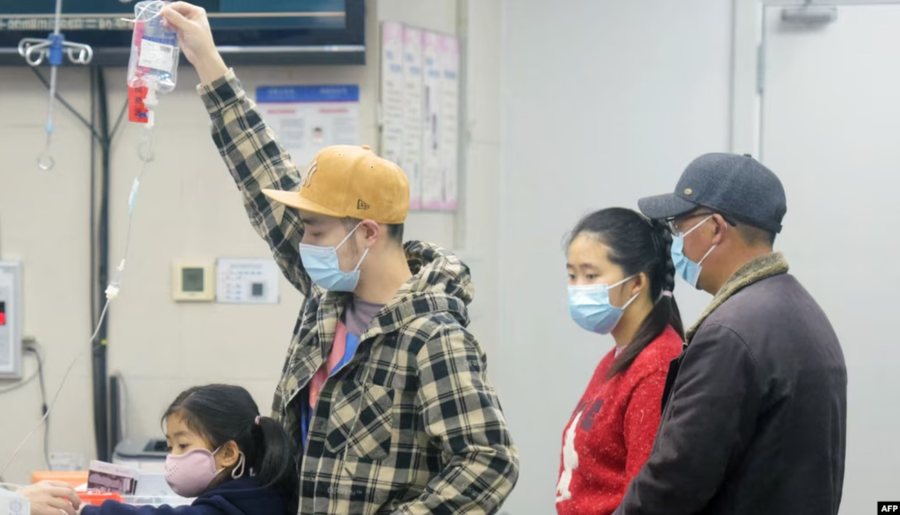
The rate of infections with the flu-like virus, human metapneumovirus (HMPV), is declining in northern China, health officials said on Sunday.
The increase in HMPV cases weeks ago had raised fears of a worldwide pandemic.
HMPV, which belongs to the same family as respiratory syncytial virus, causes flu-like or cold-like symptoms, including fever, cough and nasal congestion.
Symptoms often go away on their own, although they can cause lower respiratory tract infections in children, the elderly, and the immunocompromised.
"Human metapneumovirus is not a new virus, because it has been present in humans for at least several decades," said Wang Liping, a researcher at the Chinese Center for Disease Control and Prevention, during a press conference by China's National Health Commission.
Wang added that the increase in cases of the virus in recent years, first detected in the Netherlands in 2001, is related to better detection methods.
"Currently, the rate of positive cases in the detection of human metapneumovirus is fluctuating, while the rate of positive cases in northern provinces is declining, and the rate of positive cases in patients under the age of 14 has started to decline," she said.
Concerns have grown in recent days about a rise in HMPV infections in northern China, after images circulated online showing hospitals filled with masked patients. The World Health Organization said it has not been notified of unusual outbreaks of infections in China or elsewhere.
Last week, the National Institute of Public Health of Kosovo on Monday informed the country's citizens with essential information regarding this, with the aim of increasing preventive care measures.
The institute said at the time that there were no cases of HMPV in Kosovo.
Experts say that HMPV is not like COVID-19, as it has been around for decades and there is a built-in immunity against it. Most children are infected with this virus by the age of 5.
Wang said that the respiratory diseases currently affecting people in China are caused by known pathogens and no new infectious diseases have emerged.
The number of patients in clinics and emergency departments nationwide is increasing but generally lower than the same period last year, said Gao Xinqiang, deputy director of the health commission's Medical Emergency Response Department.
The number of flu cases across the country is expected to gradually decline in mid- or late January, Hu Qiangqiang said.
Aktualisht, nuk ka trajtim specifik ose vaksinë për HMPV dhe kujdesi mjekësor është kryesisht simptomatik dhe virusi zakonisht kalon vetë.
Ekspertët këshillojnë masa parandaluese kundër marrjes së virusit dhe sëmundjeve të tjera respiratore, sic është larja e duarve rregullisht, shmangia e vendeve të mbipopulluara dhe bartja e maskës në vende të mbipopulluara. /REL (A2 Televizion)











